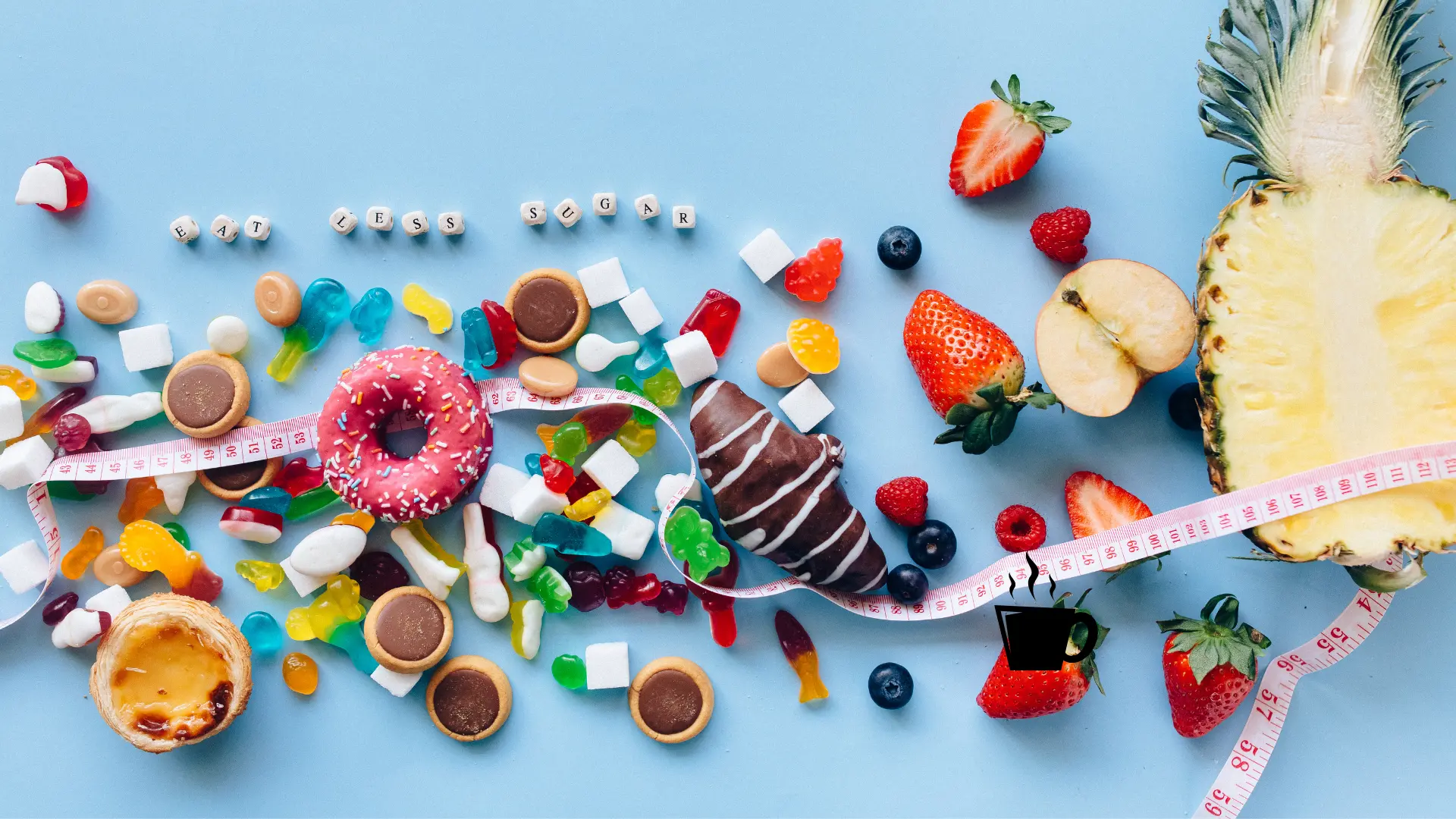1) Myth 1: All Carbohydrates Are Forbidden
One of the most common misconceptions is the idea that all carbohydrates are harmful to those with diabetes. In fact, carbohydrates are an important source of energy and can be part of a healthy diet for diabetics. The secret lies in choosing the right carbohydrates and controlling portions.
Refined carbohydrates, such as sugars and white flours, should be consumed in moderation as they can quickly raise blood sugar levels. On the other hand, complex carbohydrates found in whole foods such as whole grains, vegetables, and legumes are digested more slowly, helping to keep glucose levels under control.
2) Myth 2: Fruits Should Be Eliminated from the Diet
Fruits are naturally sweet due to their fructose content, which has led to the belief that they should be avoided by people with diabetes. However, fruits are also rich in fiber, vitamins, and antioxidants, making them a healthy choice when consumed in moderation.
Fruits with a low glycemic index, such as apples, pears, cherries, and citrus fruits, are good options for those with diabetes. It is important to observe portions and avoid fruit juices, which concentrate sugar and can lead to spikes in blood glucose.
3) Myth 3: Fats Should Be Completely Eliminated
Although it is important to limit the consumption of saturated and trans fats, it is not necessary to eliminate them completely from the diet. Healthy fats, such as those found in avocados, nuts, seeds, and fatty fish, are beneficial for cardiovascular health and can help control blood sugar levels.
Furthermore, fats can help slow down the absorption of carbohydrates, which can help prevent glucose spikes after meals. However, it is essential to consume them in moderation and opt for healthy fat sources.
4) Myth 4: Diet and Zero Sugar Foods Are Always Safe
Diet and zero sugar foods may seem like a safe option for people with diabetes, but it is important to be cautious when consuming them. Many of these products contain artificial sweeteners, which can negatively affect blood sugar levels and overall health.
Additionally, diet foods may contain significant amounts of fats and calories, which can be harmful if consumed in excess. It is crucial to read labels carefully and opt for natural versions of foods whenever possible.
5) Truth: Processed Foods and Fast Foods Should Be Avoided
While there are no forbidden foods in a diabetes diet, it is important to avoid processed foods and fast foods, which are high in added sugars, trans fats, and sodium. These foods contribute to weight gain, insulin resistance, and an increased risk of diabetes-related complications.
Opt for homemade meals prepared with fresh and healthy ingredients whenever possible. Cooking at home allows you to control the ingredients and portions, making it easier to maintain a balanced diet and control blood sugar levels.
6) Conclusion
Although there are many myths surrounding forbidden foods in diabetes, the truth is that a healthy and balanced diet can include a variety of foods, as long as they are consumed in moderation. It is important to focus on whole foods, rich in fiber, vitamins, and minerals, and limit the consumption of processed foods and fast foods.
Always consult a doctor or nutritionist for personalized guidance on the most appropriate diet for diabetes control. With proper support and conscious food choices, it is possible to keep blood sugar levels under control and enjoy a healthy and fulfilling life.
